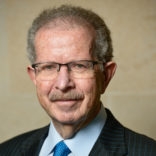NEW YORK, July 14 (JTA) — With President Bush’s approval ratings in free-fall, Republicans are reverting once again to negative campaigning. Among their tactics is a deliberate effort to disparage and distort the unambiguously pro-Israel record of Sen. John Kerry (D-Mass.). According to one prominent Republican apparatchik, “Throughout his political career, Sen. Kerry has never been a leader in support of Israel.” Nothing could be further from the truth. As an American Jew and lifelong Zionist, I enthusiastically support Kerry in this year’s presidential election. To be sure, the American Jewish community is not and should never be a single-issue constituency. We care deeply about social issues. We are dismayed by the appointment of federal judges who believe the United States is a Christian nation, or who would abrogate a woman’s right to an abortion even if her life were in danger. We care deeply about civil and human rights, at home and abroad. And we believe that our society bears the responsibility to help rather than jettison the less fortunate among us. On all of these issues, Kerry’s views are in harmony with those held by the overwhelming majority of American Jews. Nevertheless, the issue that is and should be of greatest concern to American Jews is the safety and security of the State of Israel. Having followed Kerry’s career for the past two decades, I know that Israel does not have and could not have a stronger or more reliable ally. All too frequently, American political figures begin to utter pro-Israel sentiments only as they embark on a national campaign for public office. Not so Kerry. As he told the Anti-Defamation League’s national leadership conference earlier this year, “For the entire 20 years that I have been in the United States Senate, I’m proud that my commitment to a secure Jewish state has been unwavering; not even by one vote or one letter or one resolution has it wavered. And as president, I can guarantee you that that support and that effort for our ally, a vibrant democracy, will continue.” Kerry expressed the same resolute support for Israel when he addressed the American Israel Public Affairs Committee’s annual policy conference more than seven years ago, on April 7, 1997. “As Americans,” he said, “we owe it to our Israeli partners to stand with them so that they can negotiate from greater strength, to be an ally beside them, not an ally that undermines them.” Moreover, Kerry not only understood the dire threat of terrorism long before the Sept. 11 attacks made it an American priority, but he steadfastly has rejected any justification for murderous Palestinian attacks on Israeli civilians. “Terrorism,” he declared in his AIPAC speech, “is an incontrovertible evil and an unjustified response, and the idea that every bitter dispute between Israel and the Palestinians can somehow justify Palestinian violence or justify” Palestinian Authority President Yasser “Arafat’s winking at it or should warrant the release of yet more Hamas leaders or could excuse the PLO’s failure to rewrite its covenant — all of this reflects a moral blindness, a failure of courage that only encourages the cowards, the haters and the killers.” One clear difference between the Bush administration and Kerry is their reactions to Saudi Arabian anti-Semitism. After terrorists went on a deadly rampage in the Saudi city of Yanbu on May 1, Crown Prince Abdullah announced on Saudi TV that “Zionism is behind terrorist actions in the Kingdom . . . I am 95 percent sure of that.” At the same time, Prince Naif, the Saudi interior minister, blamed Al-Qaida for the attack. Asked about this apparent inconsistency, Prince Naif explained, “I don’t see any contradiction in the two statements, because Al-Qaida is backed by Israel and Zionism.” The Saudi government, one of the Bush administration’s closest allies in the Middle East, regularly blames Israel and Zionism for all the world’s evils, including terrorism. The same Prince Naif also has declared that he believes Zionists to be behind the Sept. 11 attacks, and the Saudi press prints the most vicious anti-Semitic diatribes as a matter of course. One looks in vain for a public condemnation of Abdullah’s offensive remarks by President Bush or his senior officials, a reticence that may well be the result of the Bush family’s long and intimate relationship with the Saudi royal family. To be sure, the U.S. ambassador to Saudi Arabia politely discussed the Crown Prince’s comments with the Saudi foreign minister, but that was about it. In contrast, Kerry unequivocally denounced Abdullah’s “outrageous anti-Semitic comments” and correctly pointed out that they raise “serious questions about the Kingdom of Saudi Arabia’s commitment to combating terrorism.” Kerry understands that Israel is more than just another country. “I think it is fair to say,” he said in his 1997 AIPAC speech, “that the ashes of the Holocaust victims were scattered on the wind, but that wind also carries on it their prayers and purpose — above mountains and sea, across thousands of miles, so that the pain of history is redeemed in the Land of Israel. It is a sacred place — for them, for their people who live there and for all the world.” Both the United States and Israel need an American president of vision, moral courage and intellectual depth who thoroughly understands the imperatives of history. Kerry is that man, and for the sake of both nations, we must elect him in November.Menachem Z. Rosensaft, an attorney, is founding chairman of the International Network of Children of Jewish Holocaust Survivors and a former national president of the Labor Zionist Alliance.
Why America and Israel need Kerry
Advertisement
The views and opinions expressed in this article are those of the author and do not necessarily reflect the views of JTA or its parent company, 70 Faces Media.






